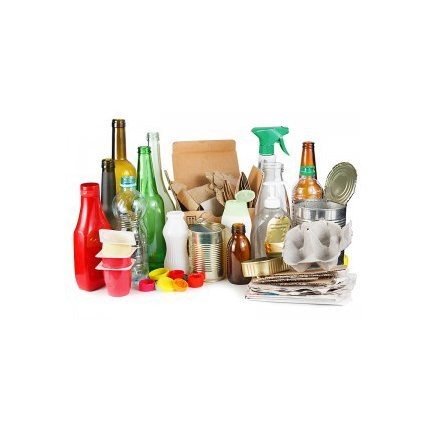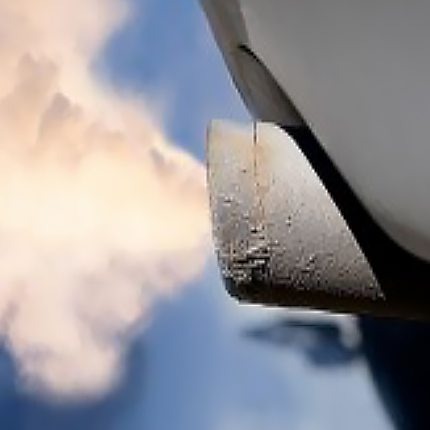The Town of Hudson proudly embraces environmental values that protect residents’ health and the local ecosystem. Hudson is famous for being the first North American Town to ban pesticides in 1991.
In 2001, two agricultural companies initiated legal proceedings against the Town of Hudson, contending that the Town had impinged upon their right to spread pesticides. The Supreme Court of Canada upheld Hudson’s by-law, thereby awarding a major victory for all municipal governments.
Since that resounding victory, over 125 cities and municipalities across Canada, including Toronto and Ottawa, have followed Hudson’s lead in eliminating the use of pesticides.
Beware of illegal pesticide use!
By-law 739-2021 prohibits the use and application of pesticides outside of buildings within all of Hudson. Pesticides are insecticides, herbicides, fungicides and rodenticides.
A product sold in stores is not necessarily authorized. In fact, most products sold in store are NOT permitted in Hudson! For example, the use of glyphosate, commercially known as Roundup, is not permitted. Although often considered gentler, insecticidal soaps and pyrethrin-containing products such as Trounce are not approved for use in Hudson.
The list of active ingredients allowed without a permit is very short. Here’s what you can use in the Town of Hudson without a permit:
- Boric acid, borax, and disodium octaborate tetahydrate (Borax can be used to destroy ant nests).
- Mineral oils (insecticides used to control small insects such as mealybugs, mites and spider mites)
- Azadirachtrin (active ingredient from the neem tree in Neem oil effective on a wide range of insects including caterpillars, some aphids, some thrips, mites, red spiders, scale insects, many flies and Hymenoptera. This active ingredient is also found in and TreeAzin to combat the emerald ash borer).
Certain exceptions are also provided for in the by-law and authorized without a permit:
- The use of insect repellent collars for pets
- The localized use of insecticide for the specific purpose of destroying a wasp nest
- The use of insect repellents (mosquito repellent), rodenticides and sealed bait boxes for domestic or commercial use to eliminate ants
In the case of an infestation, a temporary permit for the application of pesticides can be issued only after all environmentally friendly alternatives have been exhausted.
All commercial applications of pesticides and fertilizers must be carried out by a town-registered company. The employees must use a vehicle clearly identified with the name of the company. When signing a lawn care contract, be sure to check the list of substances that will be applied to your lawn.
Other interesting facts
Golf courses and agricultural land are subjected to special clauses. Both must submit an annual report describing all pesticide applications. In addition, golf courses must obtain the ACSP for golf certification issued by Audubon International which ensures the sustainable management of the golf course.
The use of neonicotinoid pesticides, which according to Health Canada pose a threat to bees and aquatic life, is strictly prohibited.
Pesticide use in sensitive zones such as schools, daycares, clinics and private residences for the elderly are always prohibited.
Registered lawn care companies (2025)
| Company Name | Certificate number | N.E.Q. |
| ABC Gestion parasitaire | 2025-00057 | 1164294895 |
| Vertdure et V extermination (two divisions, same company) | 2025-00071 | 1180062250 |
| DLC Greenteams | 2025-00082 | 1166712431 |
| Vision Gazon | 2025-00117 | 1147225222 |
| M. Gazon |
2025-00114 | 1177331650 |
| Myles Truax | 2025-00217 | 2272767619 |
| Maheu et Maheu | 2025-00493 | 1144189967 |
Hudson is bird-friendly!
In 2023, the Town of Hudson was certified as a “Bird Friendly City” by Nature Canada, a non-profit conservation organization.
Bird populations are in decline worldwide. According to Nature Canada, bird populations in North America have declined more than 25% within the last 50 years.
BIRD PROTECTION MEASURES
In November of 2022, Town Council passed a resolution in favour of pursuing certification. Specialists from Le Nichoir, in partnership with the Town’s Environment Committee, are currently undertaking steps to put in place multiple bird protection measures such as:
• The reduction of human related threats such as pesticide use and collisions with glass.
• Habitat protection, restoration and climate resiliency.
• Community outreach and education.
To find out how you can do your part to protect our birds: Hudson Eco
ENVIRONMENTAL SUBSIDY PROGRAM
The goals of this program are to:
Encourage residents to adopt sustainable practices,
Help save drinking water,
Reduce landfill waste,
Reduce greenhouse gas emissions,
Promote grass and leaf recycling, and
Improve air quality.
Residents can request a refund for the subsidies listed below, up to $500 per address per year:
| Item | Maximum amount reimbursed | Maximum number of subsidies per address |
| Cloth diapers (residential requests only) minimum of 20 diapers | $200 | 2 |
| Electric leaf blower | $150 | 1 |
| Electric lawn mower | $150 | 1 |
| Electric trimmer | $150 | 1 |
| Spare batteries for the equipment listed above | $150 | 2 |
| Mulching blade | $40 | 1 |
| WaterSense certified shower head | $75 | 3 |
| WaterSense certified toilet | $75 | 3 |
| Backyard composter | $75 | 2 |
| Rain barrel | $75 | 2 |
| Electric vehicle charging station | $300 | 1 |
A resident may apply for a subsidy if the following eligibility requirements are met:
-
- Items were purchased from January 2025,
- The subsidy application is made within twelve months of the purchase of the item,
- The application is made on a form prepared for that purpose by the Town,
- The application form is accompanied by the following documents;
- for a residential request: proof of residency,
- in the case of an institutional request, only an institutional representative may submit a request,
- an invoice clearly showing the purchase costs.
- Proof that WaterSense certified items are installed in accordance with building codes, and
- The applicant allows the Town to verify compliance with the eligibility requirements.
TREE SUBSIDY PROGRAM
In 2021, the Town of Hudson began offering subsidies to residents to plant trees on their property.
Residents wishing to benefit from this financial aid must complete the subsidy request form and provide the following documents:
- Proof of residency;
- An invoice for the purchase of a tree (or trees), from the business of their choice; and
- A photograph of the purchased tree(s).
Replacement trees must be at least 1.8 m high and 3 cm in diameter, measured at a height of 1 m from the ground. Residents can receive up to a maximum of $100 per year if all the eligibility conditions are met.
Only one financial aid request may be submitted per address per year.
To ensure the protection of the environment, the planning department will:
Enforce the pesticide ban as authorized by law
Develop new programs to promote sustainable development
Educate Hudson residents about environmental programs
Ensure the protection of natural resources
Foster sustainability
Implement innovative environmental projects
In accordance with its waste management policy, the town of hudson is committed to:
Reduce to 275 kg per resident the amount of waste disposed of (a decrease of 122 kg per resident from 2011)
Recycle 60% of organic waste
Send 70% of waste resulting from construction, renovation and demolition to the Ecocentre
For the general guidelines and strategies of our 2012-2015 ACTION PLAN, consult the

In 2012, as part of its initiative to reduce greenhouse gases, the Town of Hudson, in collaboration with numerous merchants, installed over 40 Turn off your Engine! signs.
This campaign is aimed at protecting the environment, protecting residents’ health and saving gas at the same time.
Learn more about the Turn off your Engine! campaign!

Conserving natural areas in urban environments promotes resilient and connected ecosystems. These concepts are integrated within the Metropolitan Land Use and Development Plan (PMAD) adopted in 2012 by the Montreal Metropolitan Community (MMC).
PMAD aims to conserve 17% of the surface area of the MMC, an objective first proposed by the United Nations’ Convention on Biological Diversity (CMM 2012; SCBD 2010).
Considering this goal, the Town of Hudson has funded research to develop and improve its conservation plan. Namely, in 2008, the town mandated field inventories by the firm Teknika HBA to characterize its natural areas and the distribution of vulnerable species. An initial conservation plan was proposed in 2017 by the firm CIMA+ for the town’s urban core.
The objective of the collaboration between Eco2urb and Hudson in 2019 was to build on past efforts to prioritize and rank natural areas for conservation across the entirety of the town’s natural areas. This prioritization will help inform urban planning initiatives and achieve the objectives set by PMAD, promoting biodiversity, ecosystem services, connectivity and resilience.
Specifically, the objectives of the mandate between Eco2urb and the Town of Hudson are as follows:
- Collate and validate reference data
- Produce biodiversity, landscape connectivity and ecosystem service maps
- Rank green spaces in terms of their conservation and ecosystem service values
- Define scenarios of landscape change through workshops and forecast future impacts on conservation priorities
- Report findings and make recommendations to the town council


